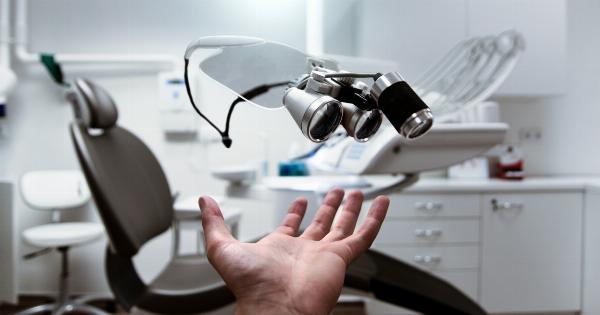Eye allergies, also known as allergic conjunctivitis, can be an unpleasant and frustrating condition. They occur when your immune system overreacts to certain allergens, causing inflammation, itching, redness, and excessive tearing in your eyes.
Managing eye allergies can be challenging, but with the right knowledge and strategies, you can find relief and enjoy clearer vision.
In this article, we will provide you with practical tips and advice to effectively manage your eye allergies, including information on common triggers, prevention strategies, and treatment options.
Understanding Eye Allergy Triggers
Identifying the triggers that cause your eye allergies is an essential step in managing them effectively. Here are some common allergens that can trigger eye allergies:.
Pollen
Pollen, particularly from trees, grass, and weeds, is a significant source of eye allergies, especially during the spring and fall seasons. It is crucial to monitor pollen forecasts and stay indoors when the pollen count is high.
Keep windows closed and use air-conditioning to filter out pollen from your indoor space.
Dust Mites
Dust mites are tiny organisms found in house dust, upholstery, mattresses, and carpets. Their waste products can trigger allergic reactions, including eye allergies.
Use allergen-proof covers for your pillows and mattresses, wash your bedding regularly in hot water, and vacuum frequently to reduce dust mite exposure.
Mold
Mold spores thrive in damp environments, such as bathrooms and basements. They can also be found outdoors in areas with high humidity.
Prevent mold growth in your home by reducing humidity levels, fixing leaks and water damage promptly, and using a dehumidifier if necessary.
Pet Dander
If you are allergic to pet dander, particularly from cats and dogs, it can exacerbate your eye allergies. Keep your pets out of your bedroom, establish pet-free zones in your home, and wash your hands after handling them to minimize exposure.
Allergic Reactions to Cosmetics
Sometimes, eye allergies can be triggered by certain cosmetic products, such as mascara, eyeliner, or eye creams. Choose hypoallergenic and fragrance-free cosmetics, and replace them regularly to avoid bacterial growth.
Remove makeup thoroughly before going to bed to prevent any potential irritation.
Prevention Strategies for Eye Allergies
While it may not be possible to completely avoid all allergens, there are several preventive measures you can take to minimize your exposure and reduce the severity of your eye allergies:.
Keep Your Eyes Clean
Wash your hands frequently, especially before touching your eyes, to prevent allergens from coming into contact with your eyes.
Use a mild, fragrance-free cleanser to gently clean your eyelids and lashes, as it helps remove any allergens or irritants that may have accumulated.
Use Artificial Tears
Artificial tears can provide relief by lubricating your eyes and flushing out allergens. They can also help soothe irritation and reduce redness. Choose preservative-free artificial tears and apply them as needed throughout the day.
Avoid Rubbing Your Eyes
Although it may provide temporary relief, rubbing your eyes can worsen symptoms by releasing more histamines, which contribute to inflammation. Instead, try cooling compresses or gently patting your eyes with a clean, damp cloth to alleviate itching.
Keep Indoor Air Clean
Use high-efficiency particulate air (HEPA) filters in your air conditioning units and vacuum cleaners to trap allergens, such as pollen, dust mites, and pet dander. Regularly clean your filters and replace them as recommended by the manufacturer.
Close Windows During High-Pollen Days
To prevent pollen from entering your home, keep windows closed during peak pollen hours and on windy days. Use air-conditioning instead to maintain a comfortable indoor environment.
Wear Sunglasses Outdoors
When spending time outdoors during allergy season, wear sunglasses or wraparound glasses to protect your eyes from pollen and other airborne allergens. This barrier can help reduce the amount of allergens that come into contact with your eyes.
Treatment Options for Eye Allergies
If preventive measures alone are not sufficient to manage your eye allergies, your eye doctor may recommend additional treatment options:.
Prescription Eye Drops
If over-the-counter artificial tears are not providing adequate relief, your eye doctor may prescribe stronger eye drops to alleviate symptoms. These medications can help reduce inflammation, itching, and redness.
Oral Antihistamines
Oral antihistamines can provide relief from systemic allergy symptoms, including eye allergies. However, they may cause dryness in the eyes, so it is best to use them under the guidance of a healthcare professional.
Steroid Eye Drops
In severe cases of eye allergies, your eye doctor may prescribe steroid eye drops to rapidly reduce inflammation and alleviate symptoms. These medications should only be used for a short duration under close supervision.
Immunotherapy
For individuals with severe and persistent eye allergies, immunotherapy may be an option. This treatment involves gradually exposing the immune system to small amounts of allergens to build tolerance over time.
Immunotherapy can be administered through allergy shots or sublingual tablets.
Conclusion
Managing eye allergies can be challenging, but with these practical tips and advice, you can find relief and enjoy clearer vision.
By identifying your triggers, implementing preventive measures, and seeking appropriate treatment, you can effectively manage your eye allergies and minimize their impact on your daily life. If your symptoms persist or worsen, it is essential to consult an eye care professional for a comprehensive evaluation and personalized treatment plan.




























